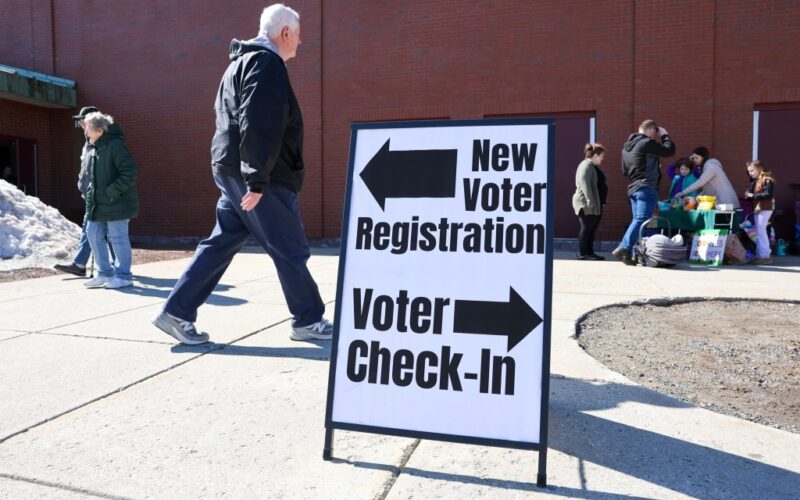Congress may press forward as soon as Thursday on a controversial proposed law that would require proof of citizenship to register to vote.
The SAVE Act purports to prevent undocumented immigrants from voting, but critics say it would make it harder for everyday Americans to cast ballots because tens of millions do not have documents proving citizenship like a birth certificate or passport.
The bill, which stands for Safeguard American Voting Eligibility, could also impose an even heavier burden on women who changed their last name when they get married, forcing them to produce a passport or other name-change documents if they want to vote.
Republicans call the measure a common sense action to ensure only Americans can vote in federal elections.
“It’s important to make sure that we have legal and constitutional elections and that illegals are not allowed to vote,” said Rep. Elise Stefanik (R-New York). “This should be an easy vote.”
Democrats say the bill’s main goal is to make it harder for younger and low-income people to register to vote, and to force Democrats into a politically damaging vote against a flawed solution in search of a problem.
“The SAVE Act is voter suppression — plain and simple,” said Rep. Joe Morelle (D-New York). “We cannot allow this legislation to be signed into law.”
GOP lawmakers first pushed the SAVE Act last year. It passed the Republican-controlled House of Representatives in July but died in the Senate, which was controlled by Democrats.
After the 2024 election, Republicans won control of both houses of Congress and the White House, potentially clearing a path for its passage.
The House rules committee approved the bill Monday, teeing it up for a potential vote on the floor as soon as Thursday. From there it would go to the Senate, where it would need 60 votes to overcome the threat of a filibuster, a hurdle requiring at least several Democrats to cross the aisle and support it.
Republicans see the SAVE Act as a can’t-lose political blunt instrument to use against Democrats, whom they attack as weak on illegal immigration.
Democrats and voting-rights advocate say the measure aims to root out a problem that really doesn’t exist, and that there are already safeguards in place to prevent illegal registrations and votes by non-citizens.
The new law would force people to appear in person with proof of citizenship to register to vote. That would effectively outlaw online or motor voter registration, which millions of new voters, especially young people, use to sign up each year.
More than 20 million people, or about 10% of all voters, say they do not have access to their birth certificate, one of a few acceptable forms of citizenship. Fewer than half of Americans have a passport, another form of citizenship proof that costs $165 to obtain.
Older Black people are particularly likely to have problems getting needed documents if they were born in the Jim Crow segregation era.
Women who changed their name when they got married would also face a special burden because they would have to prove citizenship under their new name, meaning a birth certificate with their birth name would not be enough.
Those without the needed documents would have to decide whether to spend a significant amount time and money on new identity documents or not register to vote at all.








